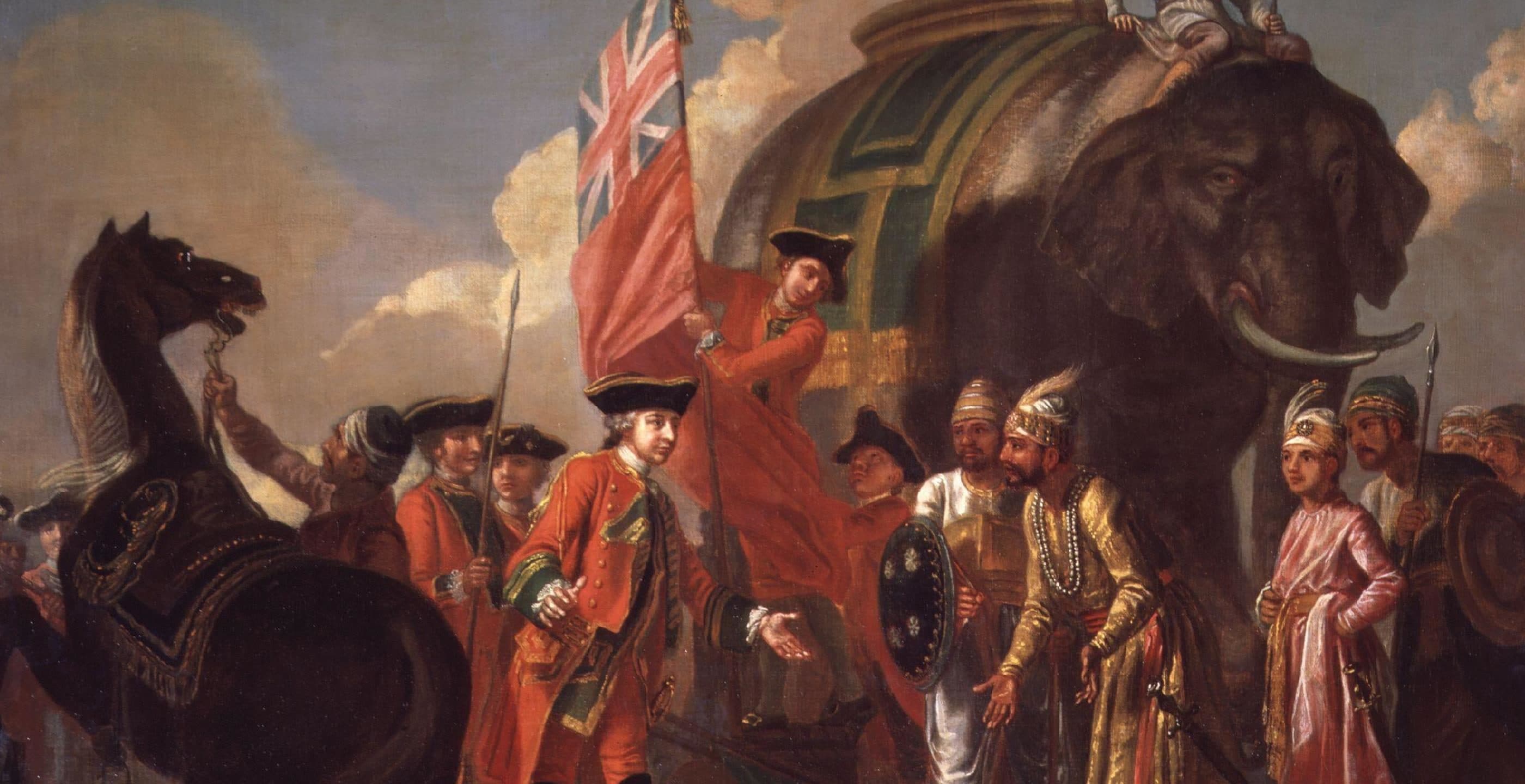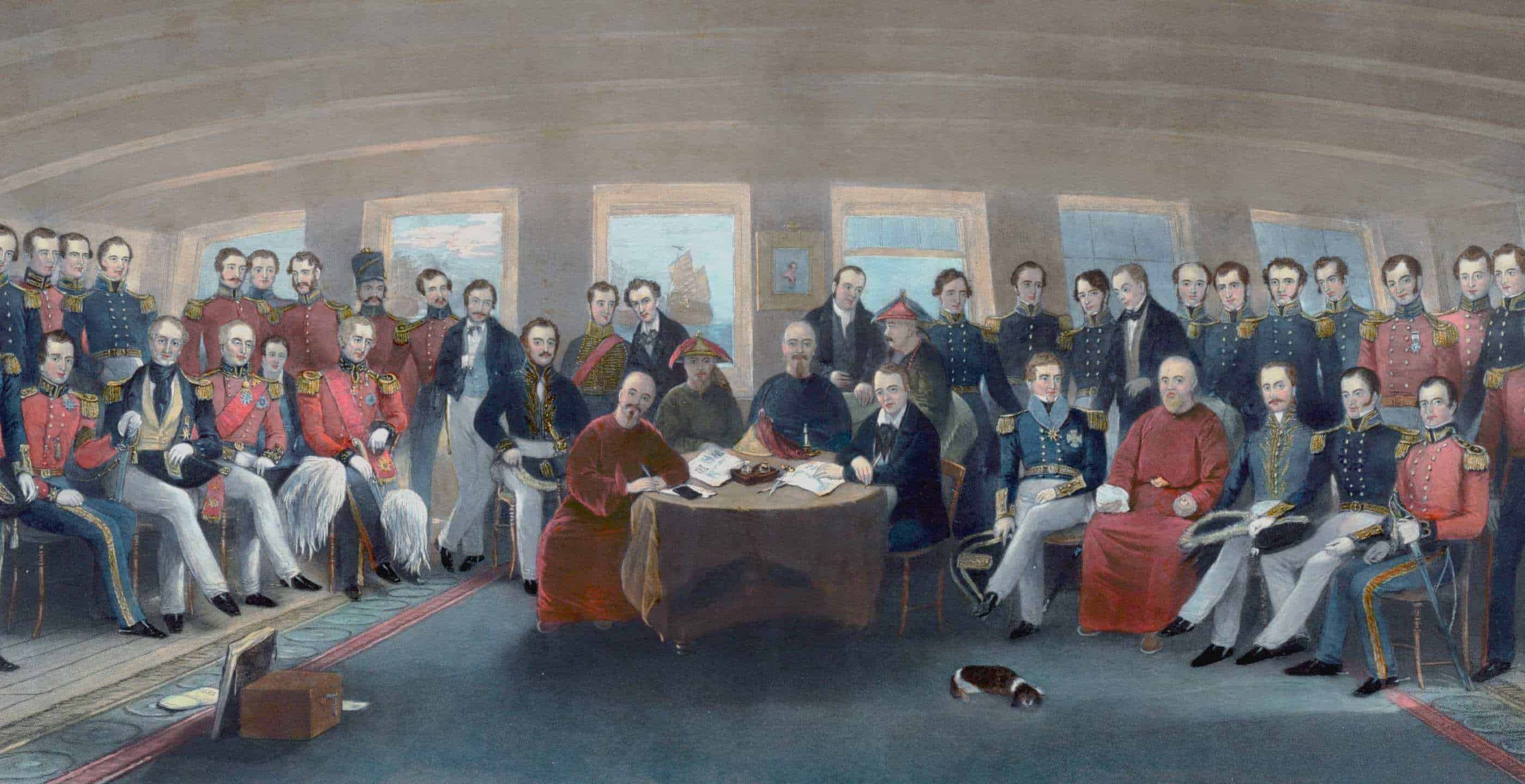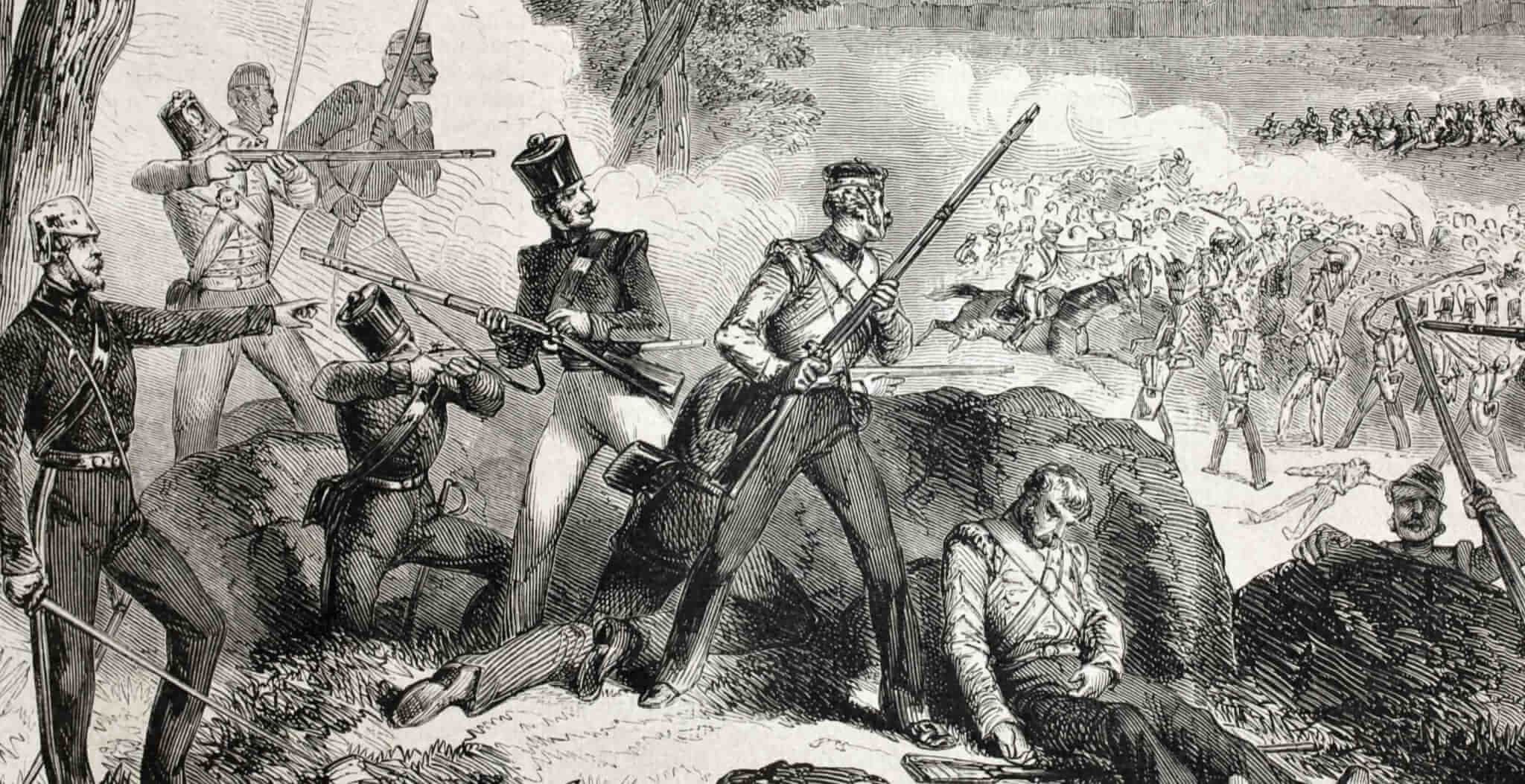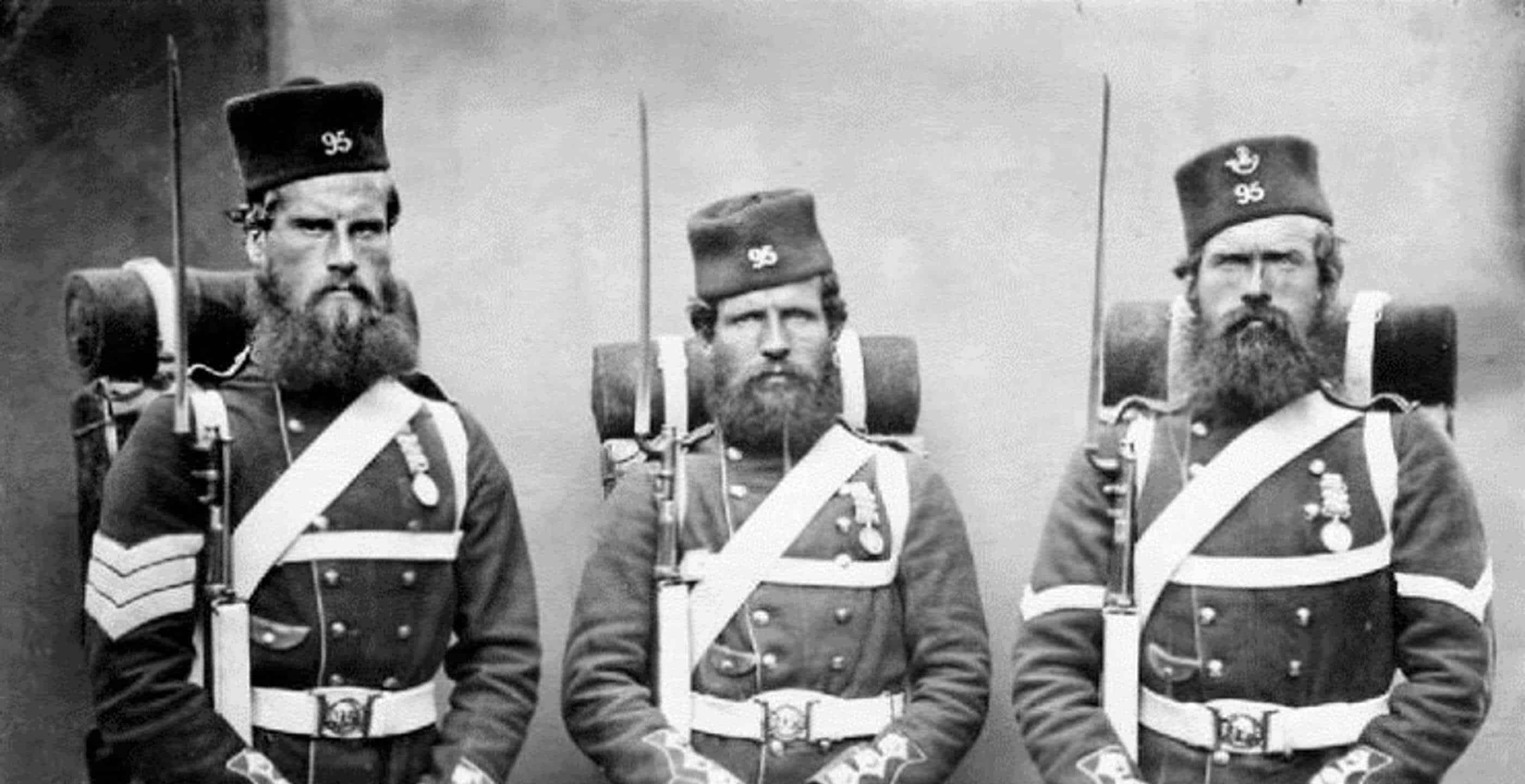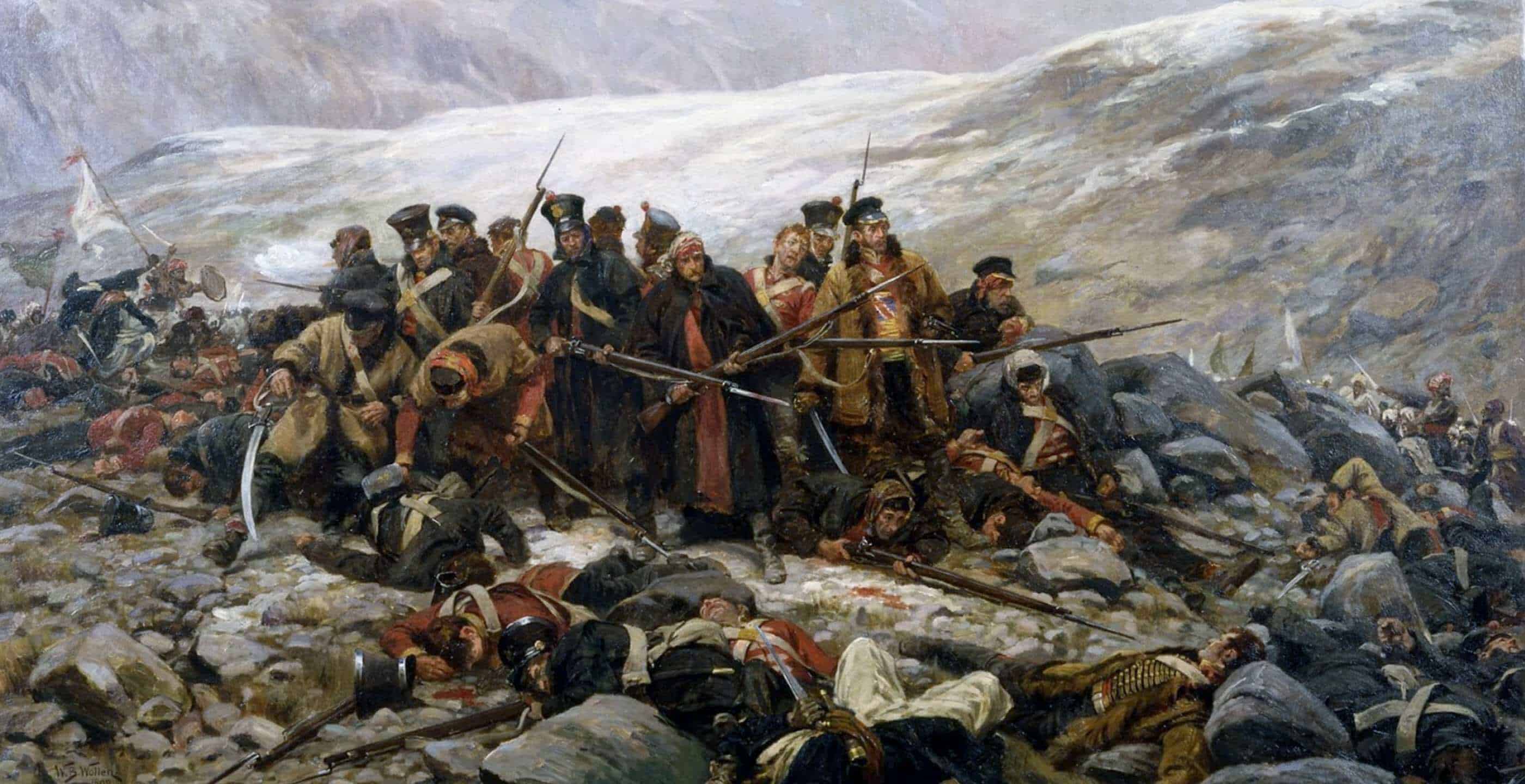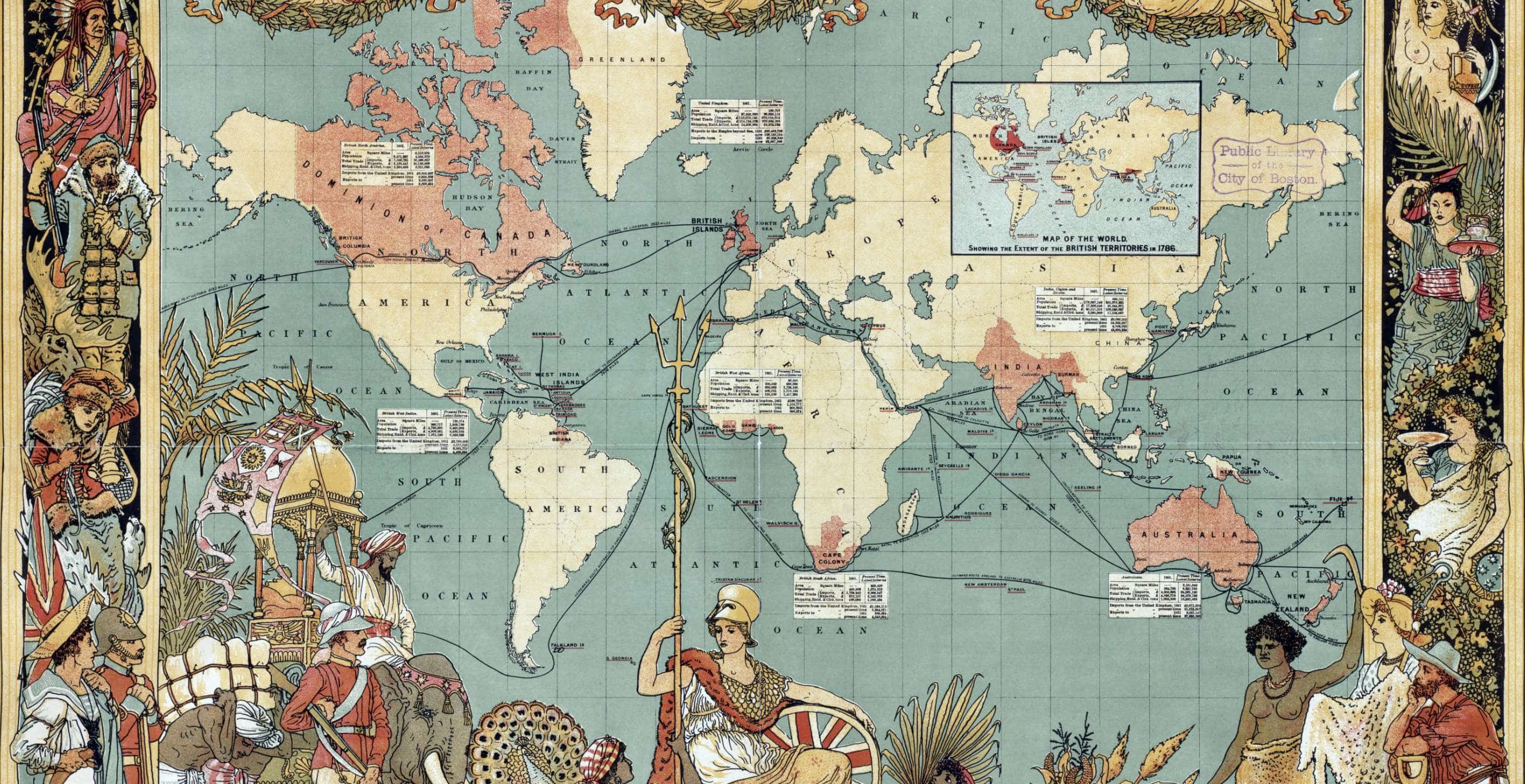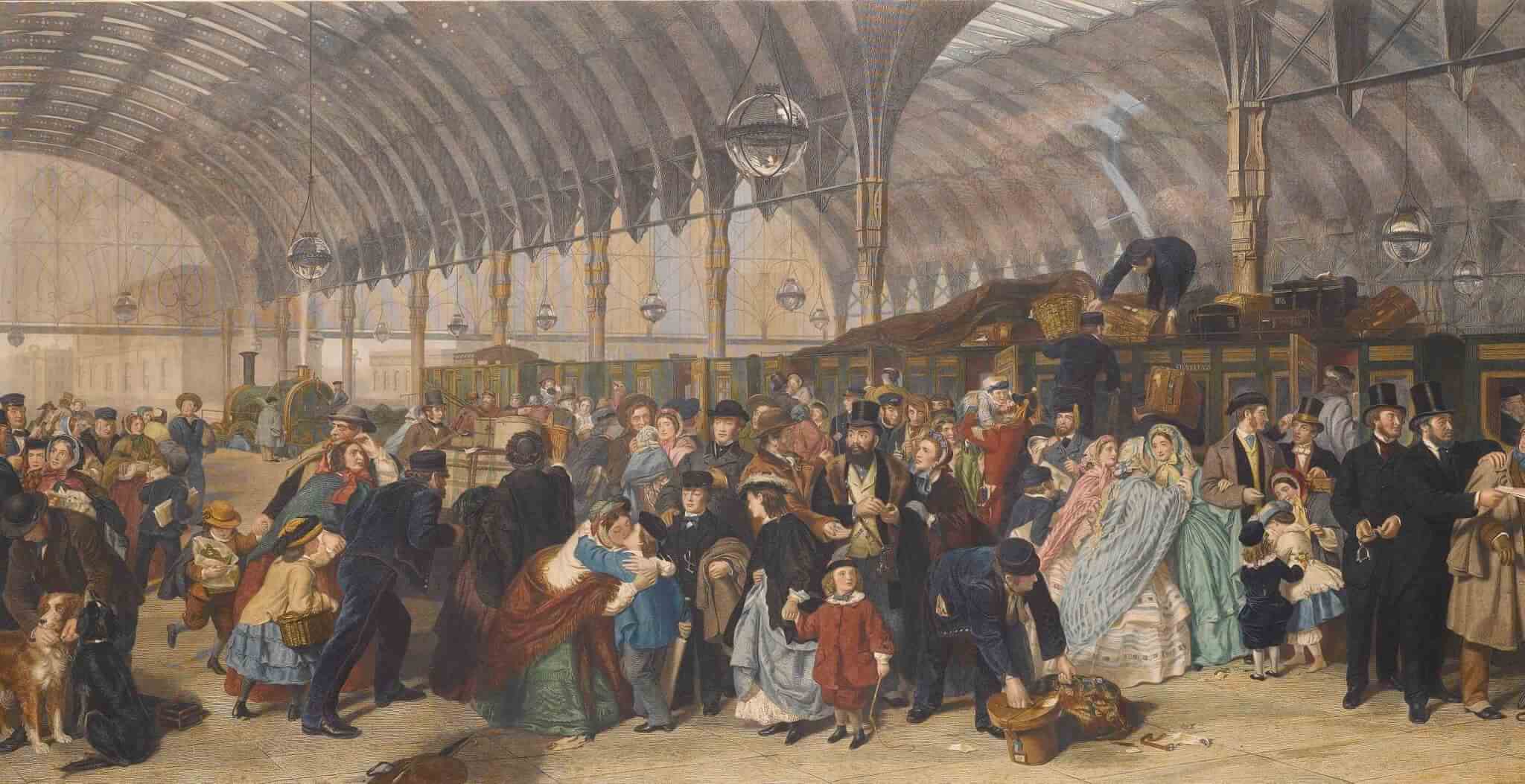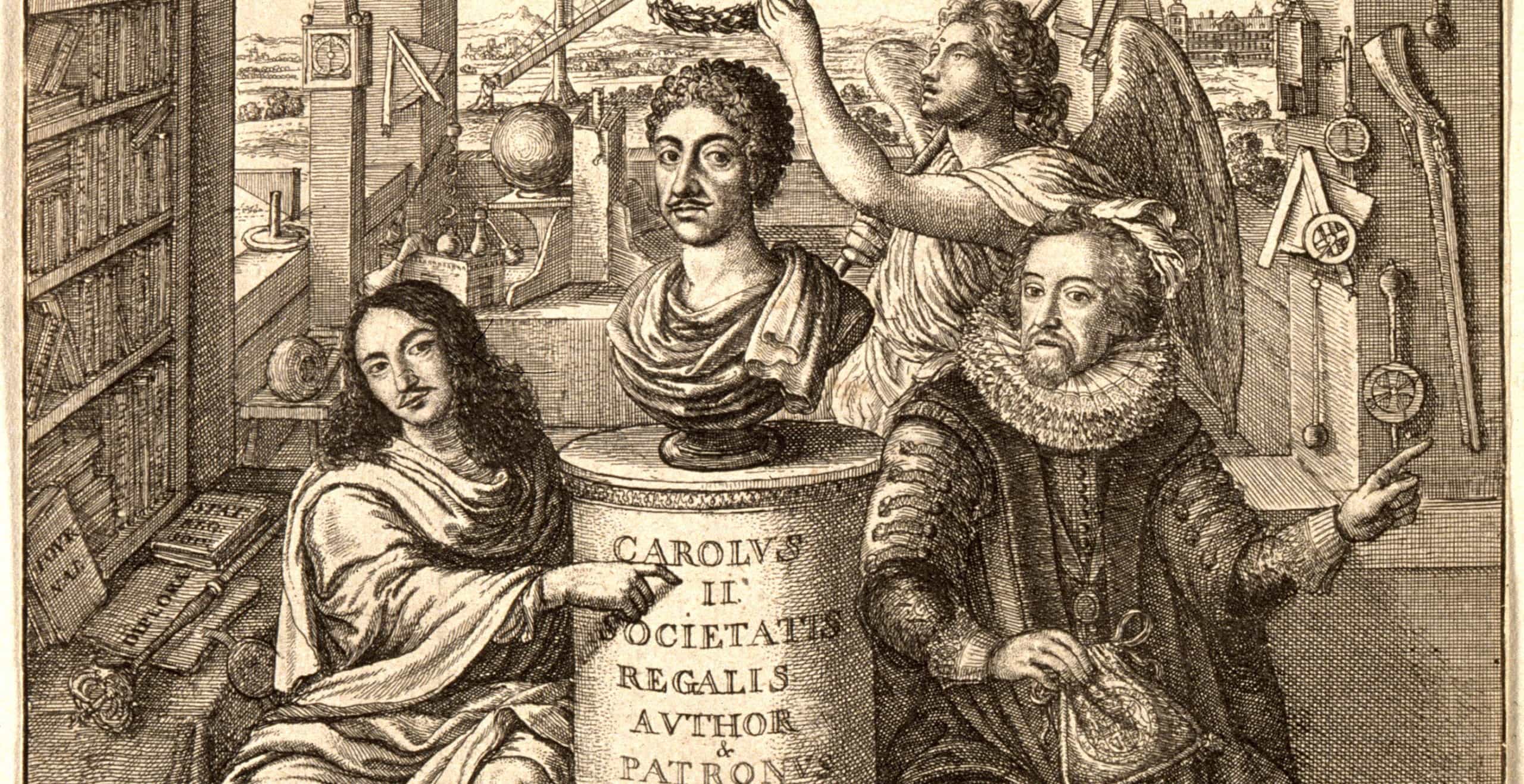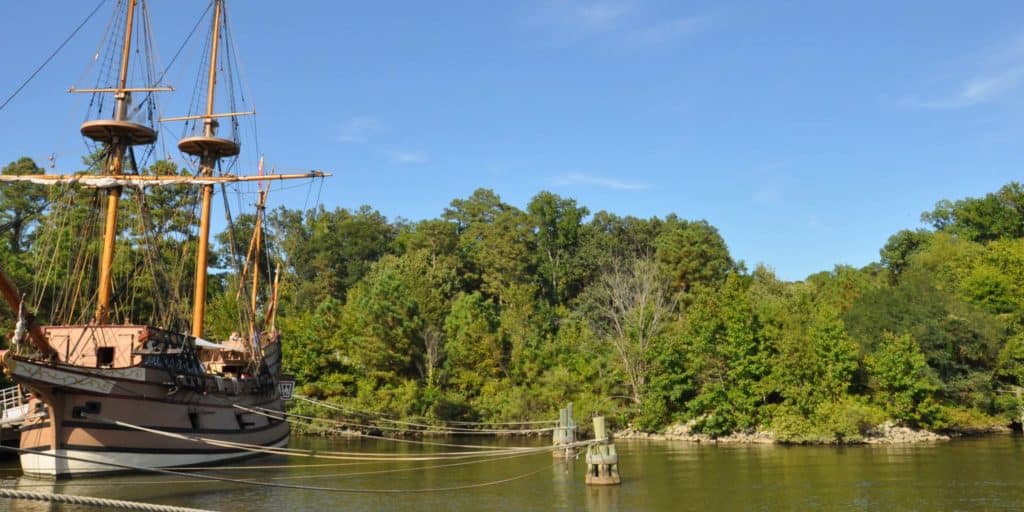The British Empire is remembered for its extensive, long-lasting and far-reaching imperial activities that ushered in an era of globalisation and connectivity. The British Empire began in its formative years in the sixteenth century and flourished and grew dramatically, lasting until the twentieth century.
Key Events:
1497 – John Cabot is sent by King Henry VII on an expedition to discover a route to Asia via the Atlantic. Cabot managed to reach the coast of Newfoundland and believed he had made it as far as Asia.
1502 – Henry VII commissioned another voyage, a joint venture between the English and Portuguese to North America.
1547 – Italian explorer Sebastian Cabot, employed by the English Crown, returned to England with information about the Spanish and Portuguese overseas explorations.
1552 – English naval officer Thomas Wyndham brought back sugar and molasses from Guinea.
1554 – Sir Hugh Willoughby, an English soldier and navigator, led a fleet of vessels in search of a northeast route to the Far East. Whilst he perished during the journey, the other vessel was successful in creating a trade agreement with Russia.
1556 – The Tudor conquest of Ireland led to land confiscation to be used for plantations.
1562 – The English naval commander John Hawkins began his involvement in the slave trade between West Africa and the New World. Hawkins, alongside Francis Drake, were given permission for privateering raids against Spanish ports in the Americas showing the determination to catch up with the success of the Spanish and Portuguese in this new “Age of Discovery”.
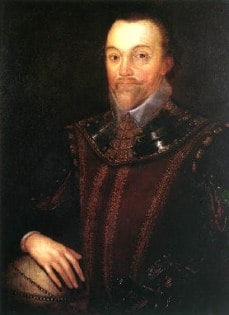
1577 – Francis Drake began his circumnavigation of the world which he completed in 1580.
1578 – The Levant Trading Company was founded in London for trading with the Ottoman Empire.
1597 – The Act of Parliament was passed which allowed transportation of convicted criminals to the colonies.
1600 – Formation of the East India Company.
1604 – Attempts made to establish a colony in Guiana.
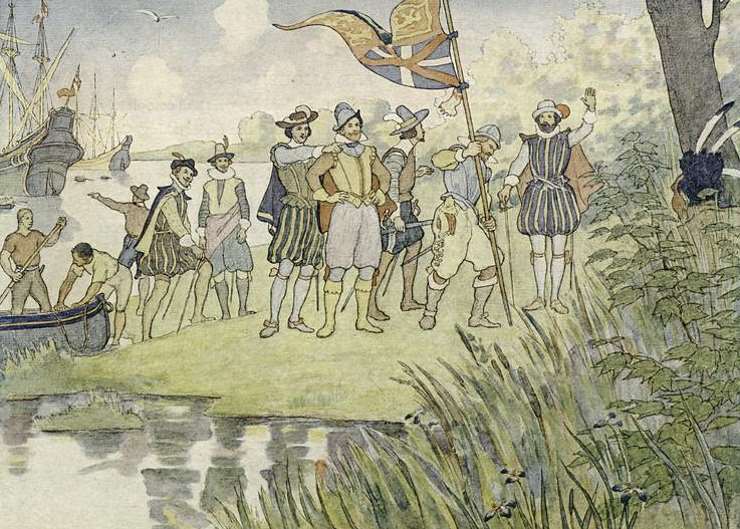
1607 – Captain John Smith and the Virginia Company managed to establish the first permanent settlement in the Americas at Jamestown.
1615 – Defeat of the Portuguese at Bombay in a dispute with the English over trading rights.
1617 – Sir Walter Raleigh begins his voyage to find ‘El Dorado’. Meanwhile a smallpox epidemic sweeps through New England, decimating the Native American population.
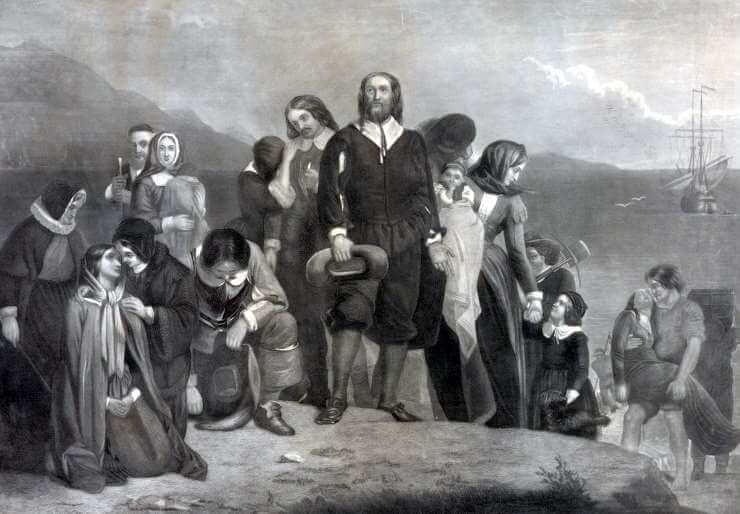
1620 – The Mayflower set sail from the port of Plymouth and began the journey with around one hundred passengers, mainly Puritans seeking a new life away from persecution across the Atlantic.
1624 – Settlements successfully established at St. Kitts.
1627 – Settlements established in Barbados.
1628 – Settlements established on Nevis.
1633 – English trading post established in Bengal.
1639 – The English settle at Madras.
1655 – The island of Jamaica was taken from the Spanish and annexed.
1660 – The founding of the Royal African Company. The Navigation Acts were passed in order to protect trading networks and products from rival powers such as the Dutch.

1661 – Charles II received a Dowry present from the Portuguese after his marriage to Catherine de Braganza, in the form of Tangier and Bombay.
1664 – The English gained control of the Dutch colony of New Netherland, renaming the settlement New York.
1666 – The Bahamas were successfully colonised.
1668 – English East India Company takes over Bombay.
1690 – Job Charnock formally founded Calcutta on behalf of the East India Company. (This has been disputed and is not universally recognised).
1708 – British East India Company and a rival company were merged into the United Company of Merchants of England, trading to the East Indies.
1713 – The Treaty of Utrecht successfully concludes the War of the Spanish Succession. This treaty allows Britain to make considerable territorial gains in the Americas and Mediterranean, including Newfoundland, St Kitts, Hudson’s Bay as well as Gibraltar and Minorca. The treaty also included Britain’s right to import slaves into Spanish colonies.
1719 – Ireland declared inseparable from Britain by the British Government.
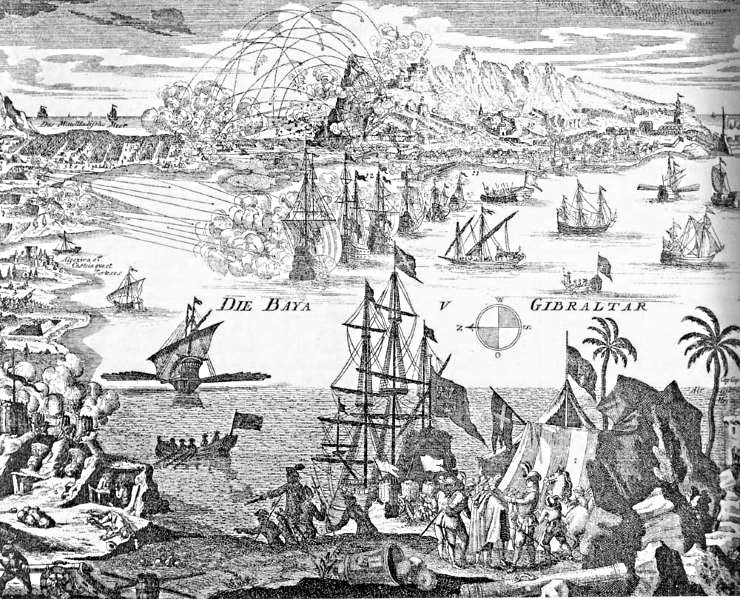
1727 – War broke out between Spain and Britain, resulting in the siege of Gibraltar by the Spanish. In the same year the Quakers raised the subject of the abolition of slavery in the colonies.
1731 – English factory workers prevented from emigrating to America.
1746 – Madras captured by the French.
1750 – The British and French entered discussions on boundaries in North America.
1756 – Minorca lost to the Spanish.
1759 – Major-General James Wolfe sails up the Saint Lawrence River and captures Quebec City from the French. His victory resulted in the unification of Canada and the American colonies under the British crown. Wolfe, “The Hero of Quebec”, was fatally wounded by three musket shots.
1763 – Rising tensions between the European powers vying for monopoly in certain areas, settlements and trading ports result in the Treaty of Paris which redistributed imperial lands. The areas of Lower Canada, land up to the Mississippi, Florida, India and Senegal were ceded to Britain. The British returned Cuba and Manila to the Spanish as part of the treaty.
1765 – The Stamp Act and Quartering Act was not well-received in the American colonies.
1769 – The Great Famine of Bengal killed over 10 million people. In the same year Captain James Cook arrived in Tahiti before making his way to New Zealand.
1770 – Captain James Cook claimed New South Wales for Britain.
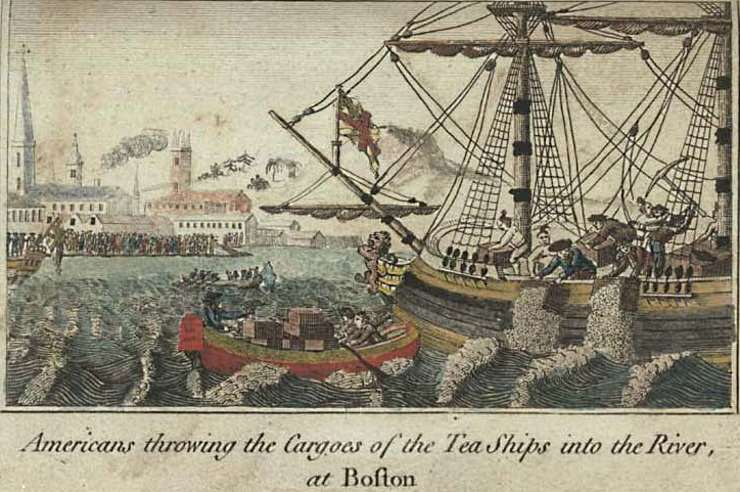
1773 – The Boston Tea Party, a reaction to Britain’s ability to levy taxes. Rising signs of discontent in America with British rule; only a matter of time before opposition turns to violence and revolt.
1775 – The American war of Independence breaks out and lasts until 1783.
1783 – Conclusion of the international conflict of the American War of Independence, impacted by French involvement, with the Treaty of Versailles. Britain is forced to recognise the independence of 13 colonies. Florida ceded back to the Spanish; Senegal ceded back to France. As part of the agreement however Britain retained imperial control in the West Indies and Canada.
1787 – The British politician William Wilberforce, a member of the Clapham Sect, began his campaign to end slavery in British colonies. This led to a free colony being established in Sierra Leone.
1788 – The first ships carrying convicted criminals from England arrived at Botany Bay, Australia. This marked the beginning of several hundred people being transported, usually for petty crimes, across the world.
1801 – Irish Act of Union unites Britain and Ireland.
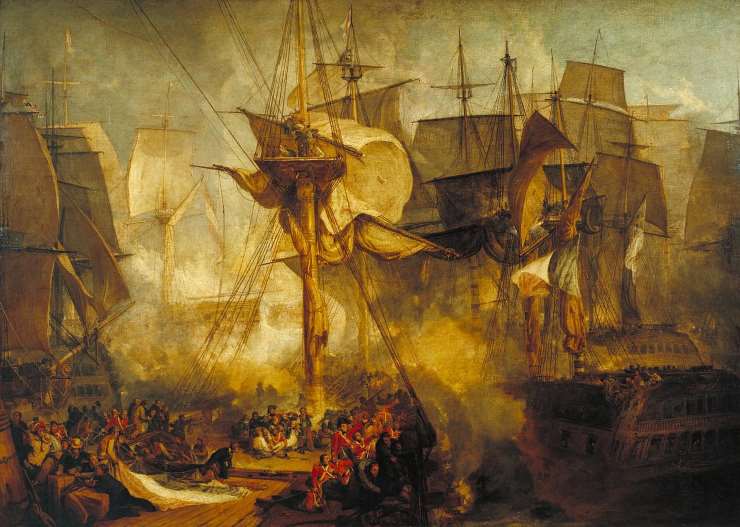
1805 – Victory for Nelson at the Battle of Trafalgar allows the Royal Navy to have control of the seas.
1806 – Cape of Good Hope occupied by the British.
1807 – Prohibition of shipment of slaves in British ships or to British colonies. Formation of the Royal Navy’s West Africa Squadron, tasked with suppressing the slave trade by patrolling the West African coastline in search of illicit traders.
1812 – The War of 1812 and the burning of the White House, a Union Flag was subsequently raised over Washington.
1813 – English East India Company lost its trading monopoly with India.
1816 – The Congress of Vienna was yet another attempt to establish peaceful terms between European powers. Britain returned Dutch and French colonies.
1819 – Singapore founded by Sir Stamford Raffles.
1821 – Sierra Leone, Gambia and the Gold Coast form British West Africa.
1833 – The abolition of slavery throughout the British Empire.
1839 – The Opium Wars between China and Britain, resulting from the trade of opium leading to widespread addictions. As a result the trade was forbidden in China and any opium found was destroyed. The British viewed this as an attack on free trade and destruction of British property; thus war ensued.
1841 – Britain occupied the island of Hong Kong.
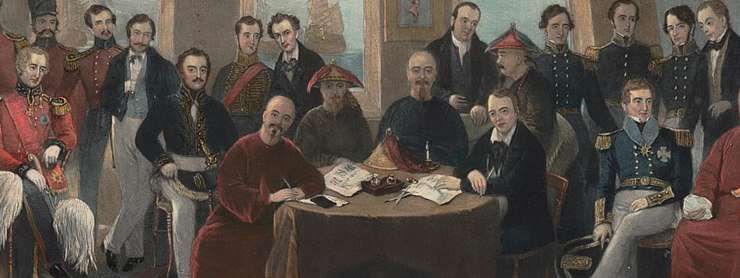
1842 – Treaty of Nanking concluded the First Opium War and ceded Hong Kong to the British.
1843 – Maori revolt against British rule in New Zealand.
1853 – Construction of railways in India.
1856 – The Second Opium War.
1858 – East India Company dissolved.
1870 – British troops were withdrawn from Australia, New Zealand and Canada.
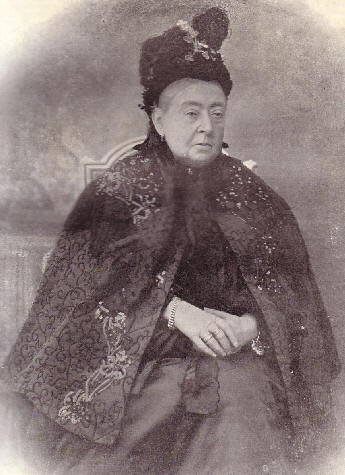
1876 – Queen Victoria took the title Empress of India.
1878 – Occupation of Cyprus. The British send an ultimatum to the Zulu King Cetshwayo demanding that he disbands his army within 30 days, thus starting the Anglo-Zulu War.
1879 – Zulus victorious at the Battle of Isandlwana, leaving 1,329 British dead included 52 officers and 806 non-commissioned officers and men. In March at the Battle of Kambula a British force fought off 22,000 Zulu warriors. In June at the Battle of Ulundi the Zulu army are all but destroyed marking the end of the Anglo-Zulu War, it also marked an end to the Napoleonic dynasty.
1800 – The First Boer War between the British and the South African Republic.
1889 – At the instigation of Cecil Rhodes, the British South Africa Co (BSAC) was awarded a royal charter to expand the British Empire and to exploit colonial resouces; Rhodesia established.
1894 – Uganda became a protectorate.
1895 – The Jameson Raid, an unsuccessful raid by the British against the Transvaal Republic.
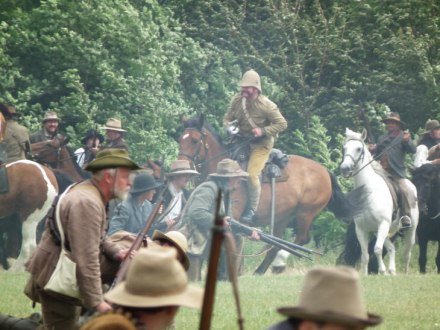
1899 – Outbreak of the Second Boer War, fought between the British Empire and the two Boer States known as the Republic of Transvaal and the Orange Free State. An accumulation of tension over a century’s old rivalry between the two powers, escalated by the profits gained from the Witwatersrand gold mines, led to the Boer Ultimatum.
1917 – The Balfour Declaration announced support for a “national home for the Jewish people” in Palestine.
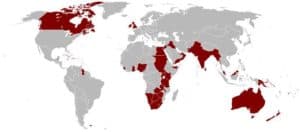 The British Empire at its territorial peak in 1921
The British Empire at its territorial peak in 1921
1931 – The Statute of Westminster gave Dominions constitutional autonomy.
1947 – Declaration of Indian Independence and the partitioning of India and Pakistan.
1948 – British withdrawal from Palestine.
1952 – Mau Mau Rebellion broke out in opposition to white British colonial rule in Kenya.
1956 – Sudan gained independence, closely followed the next year by Ghana. One by one British colonies throughout the African mainland declared independence in the next decade, concluding in 1966. The one exception was Namibia which was late to achieve independence in 1990. In the following decades numerous other countries across the globe proceeded to gain their independence from Britain, with some leaving colonial rule on specific dates whilst others achieved independence through a longer process initiated by dominion status. The breaking up of the British Empire dominated the twentieth century landscape and ushered in a new era of global relations.
1972 – Asians expelled from Uganda.
1982 – Falklands War.
1997 – Hong Kong handed back to Chinese.
Present Day – Britain and the Commonwealth Nations.
The British Empire was a crucial component in shaping lives, peoples, travel, economy, technology, politics and culture for hundreds of years. For better or worse, the impact of the British Empire has earned its place in the history books.
Jessica Brain is a freelance writer specialising in history. Based in Kent and a lover of all things historical.
Published: 8th February 2019.
